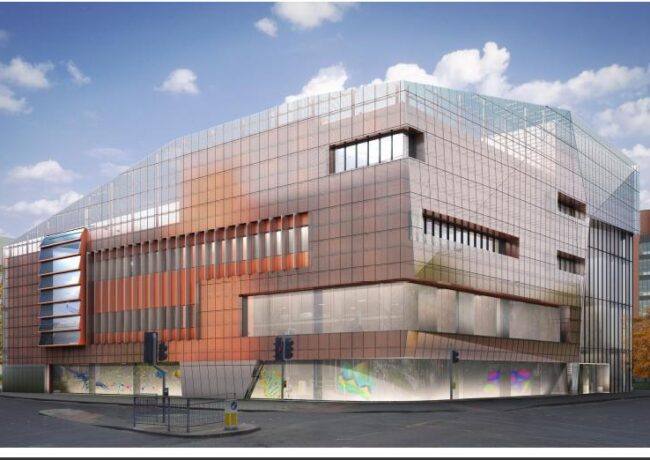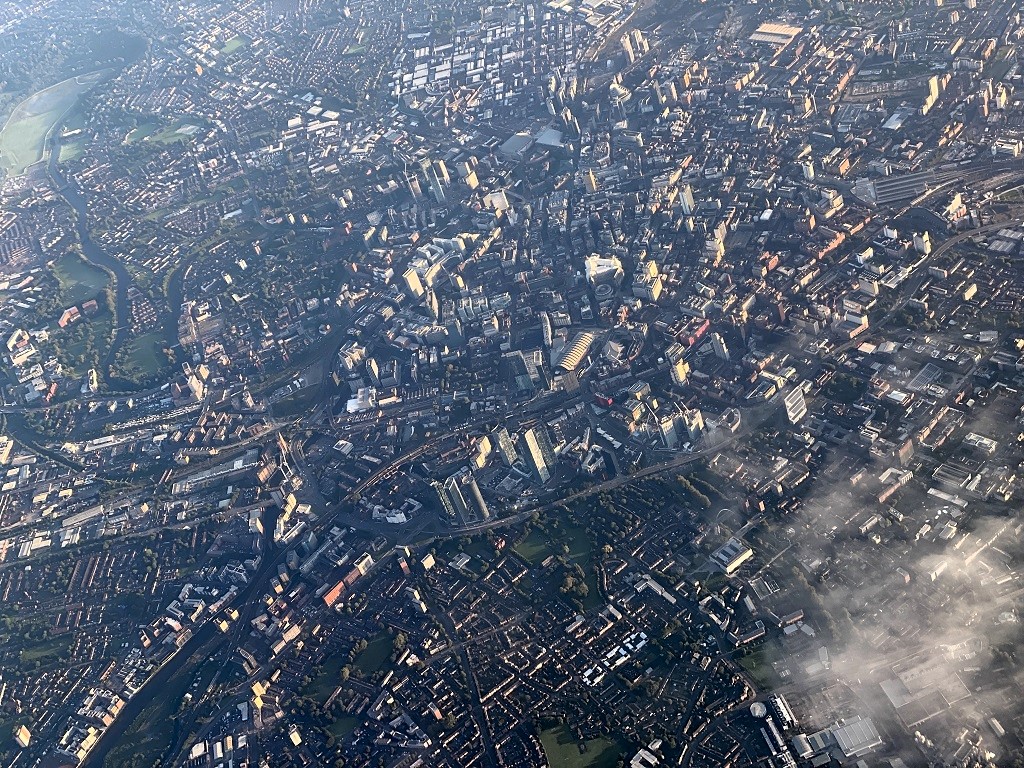€30m ERDF grant for graphene centre
The European Commission awarded Manchester's new National Graphene Institute €30m (£26m) from the European Regional Development Fund to help establish "Europe's leading research and commercialisation centre for graphene".
The EC said in a statement this week: "Graphene is the world's thinnest, strongest and most conductive material. It offers huge potential for researchers and industry alike in fields from computing to smart phones. The institute will work with other research centres and companies in applied research which helps take graphene from the laboratory to the market place, strengthening Europe's competitiveness in the growing global market for graphene applications."
The 81,600 sq ft lab and teaching building in Booth Street East is due for completion in 2015. The institute was designed by Jestico + Whiles. The main contractor is expected to be announced in April. The shortlist of construction firms is Lend Lease, Laing O'Rourke, Bam, Morgan Sindall, Vinci, M&W Group.
The project, led by Manchester University, is expected to cost around £61m, made up of an initial £30m construction cost followed by lab fit-out and maintenance. In October 2011, UK Government awarded £50m towards the NGI.
Johannes Hahn, EC commissioner for regional policy, said: "I am very pleased that European investments will enable the establishment of the National Graphene Institute. As a former science minister I am well aware of the importance of supporting cutting edge research and providing the means for that to be commercialised. This is good news for the North West in terms of jobs but it also will ensure that Europe as a whole remains at the forefront of research into graphene: giving EU businesses a valuable opportunity to use the vast potential of this material. Supporting these kinds of initiatives is just what our modern Regional Policy should and will be doing more of in the future."
Graphene was isolated for the first time in Manchester University by Prof Andre Geim and Prof Kostya Novoselov in 2004, who were awarded the Nobel Prize in Physics in 2010.
Prof Novoselov said: "We are delighted to have been awarded this hugely-significant sum of money by the European Regional Development Fund, which will pave the way for the National Graphene Institute.
"Graphene has the potential to revolutionise so many different areas of our lives, and it is fantastic that the Government and the European Commission have recognised that with their important investments."
Prof Colin Bailey, vice-president and dean of the faculty of engineering and physical sciences at Manchester University, added: "Establishing the National Graphene Institute is crucial to the continued advancement of graphene research in Manchester and in the UK.
"To have such a significant award allows us to build this world-leading Institute and allows Manchester to continue its well-deserved reputation as the home of graphene."




